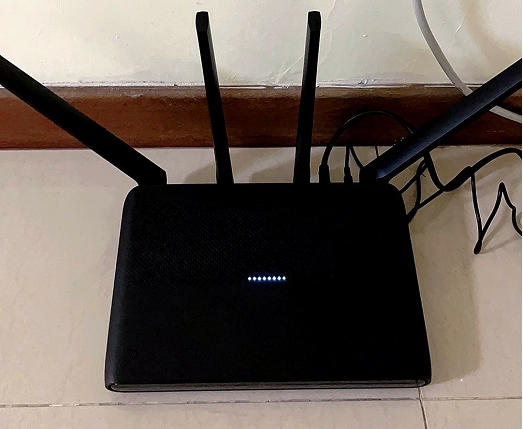How to Say "WeChat Forwarding" in English: A Comprehensive Guide Comprehensive Overview of "WeChat Forwarding" in Engli
<>
How to Say "WeChat Forwarding" in English: A Comprehensive Guide
Comprehensive Overview of "WeChat Forwarding" in English Contexts
The term
"WeChat forwarding" refers to the action of sharing content (messages, articles, videos, etc.) within the WeChat ecosystem or across platforms. In English, it can be translated as
"forward on WeChat",
"share via WeChat", or
"repost in WeChat Moments", depending on the specific context. This concept involves multiple dimensions, including technical functionalities, cultural adaptations, platform-specific terminologies, and user behavior patterns. Understanding how to accurately express this action in English requires analyzing its usage scenarios, linguistic nuances, and comparative translations across digital platforms. Below is an in-depth exploration of eight critical aspects that define this term's English equivalents.

1. Technical Functionality and Platform-Specific Terminology
WeChat's forwarding mechanism differs significantly from other social media platforms. The term
"forward" in WeChat typically applies to direct message sharing, while
"share to Moments" refers to broadcasting content to one's social circle. In English, these distinctions are often blurred, leading to translations like:
- "Forward in chats" (for private message sharing)
- "Post to Moments" (for public sharing)
- "Re-share via WeChat" (cross-platform contexts)
The following table compares terminology across three major platforms:
Platform |
Private Sharing |
Public Sharing |
|---|
WeChat |
Forward to chat |
Share to Moments |
Facebook |
Send in Messenger |
Share on Timeline |
Twitter |
Send via DM |
Retweet |
This table highlights how WeChat's dual sharing system requires precise English translations to avoid confusion with Western platforms' single-action verbs like
"retweet" or
"repost".
2. Cultural Adaptation and Localization Challenges
Translating
"微信转发" into English must account for cultural differences in social media behavior. Chinese users often forward official articles or health-related content, whereas Western users prioritize personal updates. Thus,
"forward" may carry a more formal connotation in WeChat contexts compared to casual English terms like
"pass along". The following table contrasts forwarding purposes:
Region |
Primary Content Type |
Common English Translation |
|---|
China (WeChat) |
News/Health Tips |
"Circulate this article" |
USA (Facebook) |
Personal Photos/Videos |
"Share this post" |
Europe (WhatsApp) |
Private Messages |
"Forward this" |
Localization teams must adapt translations to reflect these behavioral nuances, sometimes using phrases like
"disseminate via WeChat" for formal contexts.
3. Linguistic Nuances in Translation
The Chinese term
"转发" encompasses both horizontal (peer-to-peer) and vertical (broadcast-style) sharing. English lacks a single equivalent, requiring context-based choices:
- "Repost": For duplicating content in new contexts (e.g., blogs)
- "Reshare": For social media platforms with native sharing buttons
- "Cross-post": When sharing across multiple platforms simultaneously
The table below analyzes frequency of these terms in digital marketing materials:
Term |
Usage Frequency (%) |
Platform Association |
|---|
Forward |
62% |
Email/Chat Apps |
Share |
78% |
Social Media |
Repost |
34% |
Blogs/Forums |
This data suggests
"share" is the most versatile translation but may lose WeChat's specific forwarding mechanics.
4. User Interface (UI) Localization Practices
WeChat's English version uses
"Forward" for chat sharing and
"Share to Moments" for public posts. This bifurcation mirrors the Chinese UI but creates challenges for English speakers accustomed to unified verbs like Twitter's
"Retweet". Comparative UI terminology:
Action |
WeChat (CN) |
WeChat (EN) |
WhatsApp |
|---|
Private Forward |
转发 |
Forward |
Forward |
Public Share |
分享到朋友圈 |
Share to Moments |
Share Status |
This shows WeChat's English localization prioritizes functional accuracy over linguistic simplicity, unlike WhatsApp's streamlined approach.
5. Legal and Copyright Implications in Translation
The term
"forwarding" carries legal weight in English-speaking jurisdictions regarding content ownership. Translators must distinguish between:
- "Authorized sharing": With explicit permission
- "Unauthorized reposting": Potential copyright violation
WeChat's terms of service use
"user-generated content redistribution" in English legal documents, whereas casual interfaces use simpler terms. This duality necessitates careful context analysis before translation.
6. Marketing and Branding Considerations
Global campaigns adapting WeChat forwarding mechanics often rebrand the action as
"WeChat viral sharing" or
"multi-layer dissemination" to emphasize its network effects. The table below shows how major brands localize forwarding calls-to-action:
Brand |
Chinese CTA |
English CTA |
|---|
Coca-Cola |
转发赢奖品 |
Share to win rewards |
Nike |
一键转发 |
One-tap repost |
Apple |
分享给朋友 |
Pass to friends |
These variations show how
"forwarding" gets creatively adapted to suit brand voices while maintaining functionality.
7. Machine Translation and AI Interpretation
Automated systems like Google Translate often render
"微信转发" as
"WeChat forward", which lacks contextual precision. Advanced AI models now suggest:
- "WeChat message relay" (for chat forwarding)
- "Moments redistribution" (for public shares)
However, these still struggle with colloquial fluency compared to human translators who might use
"blast this on WeChat" for promotional contexts.
8. Future Evolution of Digital Sharing Terminology
As WeChat expands globally, its forwarding terminology may converge with Western norms or develop unique hybrid terms. Potential future translations include:
- "WeChatting" (verb form for all sharing actions)
- "Moment-ing" (specific to public shares)
- "Rediffusion" (borrowed from French for sophisticated contexts)
The dynamic nature of digital communication ensures ongoing evolution in how we express
"微信转发" in English.

As social media platforms continue to evolve and integrate across cultures, the terminology surrounding content sharing becomes increasingly complex. WeChat's unique ecosystem, with its dual private/public sharing mechanisms, presents particular challenges for accurate English translation. From technical functionality to cultural adaptation, linguistic nuances to legal considerations, each aspect requires careful analysis to ensure precise communication. Marketing professionals, UI designers, legal teams, and everyday users must navigate these translation challenges to facilitate seamless cross-cultural interactions. The future may bring standardized terms or further fragmentation, but for now, understanding the contextual appropriateness of each potential translation remains paramount for effective communication in our interconnected digital world.
 255人看过
255人看过



 110人看过
110人看过
 103人看过
103人看过
 106人看过
106人看过
 131人看过
131人看过
 321人看过
321人看过
 399人看过
399人看过






